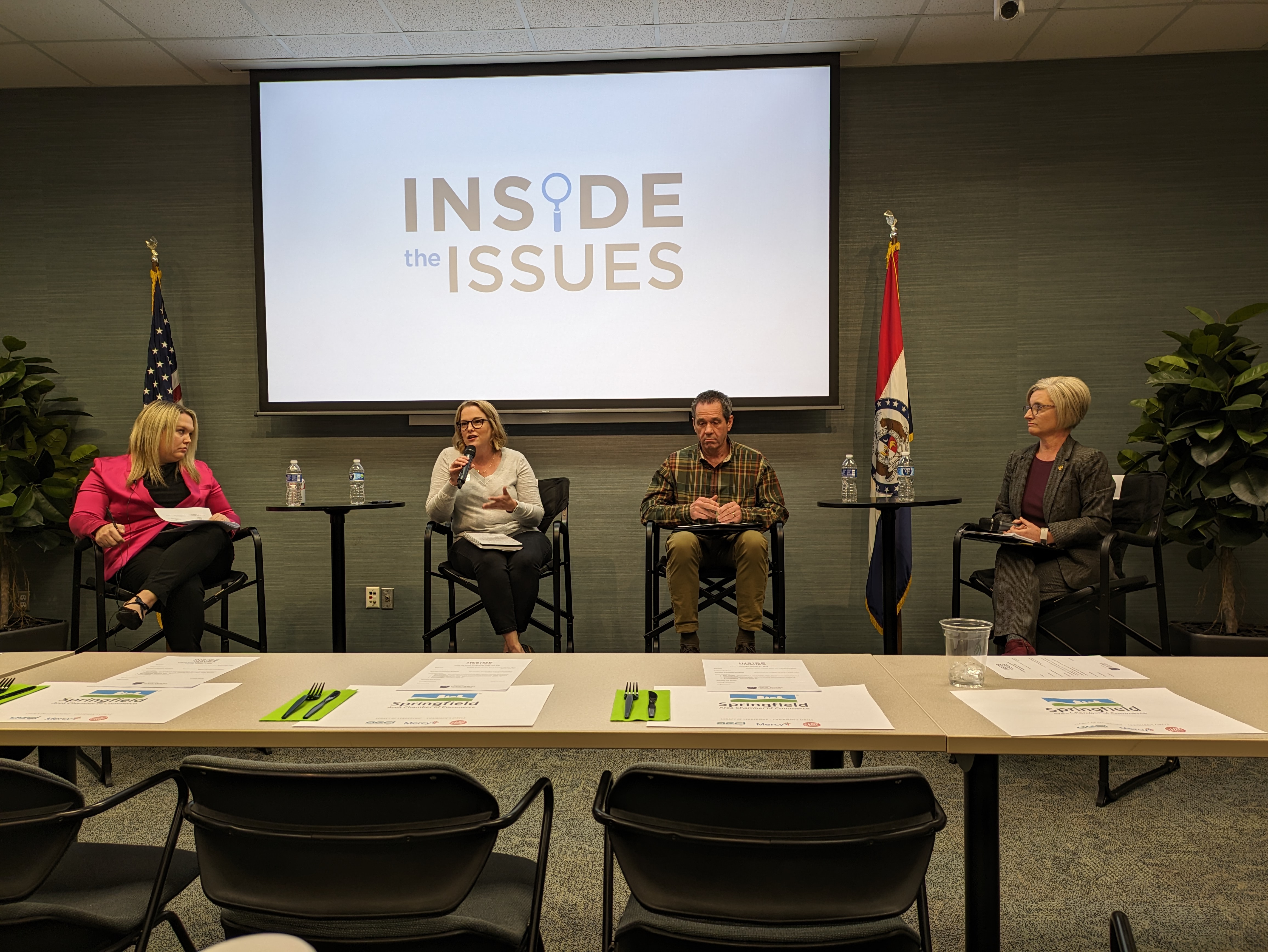Inside the Issues: Bridging the Child Care Gap

Chamber members attended the first Inside the Issues event of 2024 to learn about opportunities to address a significant business community concern: the child care gap. On January 11, industry experts representing local and state perspectives shared valuable insights and opportunities for employers to consider as they work to address this ongoing workforce barrier.
Attendees heard from several speakers who have experienced the impact of child care challenges and are directly working to identify creative approaches at the local and state level.
Missouri Chamber of Commerce and Industry Vice President of Governmental Affairs Kara Corches has been a key advocate for childcare at the state level and provided impactful data on how the child care gap affects workers, employers, and the economic success of the state.
- Child care issues result in an estimated $1.35 billion loss annually for Missouri’s economy (U.S. Chamber/Missouri Chamber).
- 80% of Missouri business leaders say issues with child care are hurting their ability to recruit and retain works (Missouri Chamber)
- 89 %of Missouri voters believe in enhancing access to affordable childcare to help parents succeed in the workforce.
"We can't have economic growth without job growth, and we can't have job growth without workers,” Corches emphasized.
The U.S. Chamber of Commerce Childcare Roadmap for Employers further highlights several cost-effective methods that businesses can employ to assist with child care, including utilizing existing organizational programs to aid working parents and offering flexible working schedules that provide stability and predictability for working parents.
At the state level, Corches highlighted a child care tax credit package currently moving through the legislative process. A top priority for Missouri Governor Mike Parson, this tax credit package aims to support providers, employers and families, represent a comprehensive and flexible approach to bridging the gap. As of January 12, House Bill 1488 received strong bipartisan support in its first public committee hearing.
"The ultimate aim of these tax credits is to foster the growth and bolster the support of businesses, ultimately leading to an increase in our workforce,” said Corches.
Representative Hein encouraged community members to engage with their legislators to express the importance of the child care issue and suggested that if the tax credits are passed, it would be valuable to leverage the expertise of the business community to maximize the benefits of these credits.
Jennifer Crouch, center director for Ozarks Technical Community College Early Childhood Center, highlighted while there is more discussion on addressing the child care gap than ever before and there are still many untapped opportunities for creative solutions specifically for employers, which requires exploring community-based solutions.
Crouch highlighted several primary concerns, including a significant lack of philanthropic funding toward early child care, a lack of connections between business and providers, and the high cost of care for children under the age of two. For Crouch, the community-based solutions start with employer partnerships.
"The business community must be prepared to make investments in these endeavors."
Prime, Inc. is no stranger to these types of investments. Darrel Hopkins, president of Prime, Inc., shared more about their approach to employee benefits, notably offering onsite child care.
“We want to hire the best,” Hopkins said. "The onsite learning center brings with it numerous unexpected advantages for our employees.” These benefits include reduced travel time, increased opportunities to engage with their children throughout the workday, and increased productivity and retention among employees. “It’s a win-win for everyone,” he said.
State Representative Stephanie Hein further stressed that this challenge extends beyond district boundaries, and it will require the collective effort of community members to drive progress and find solutions.
“When we invest in our workforce we are investing in all Missourians.”

